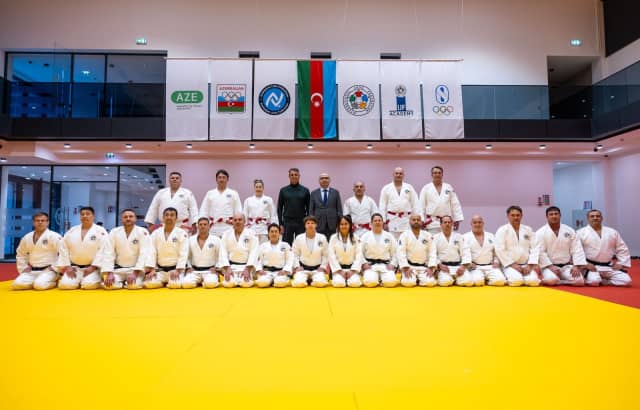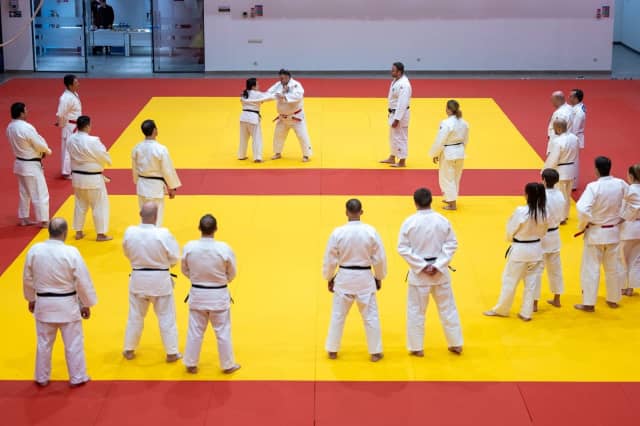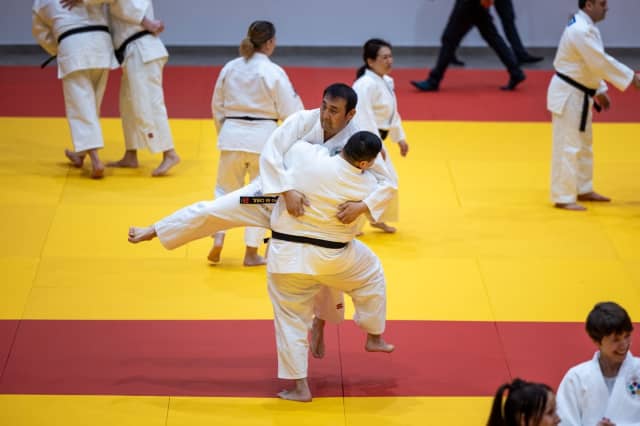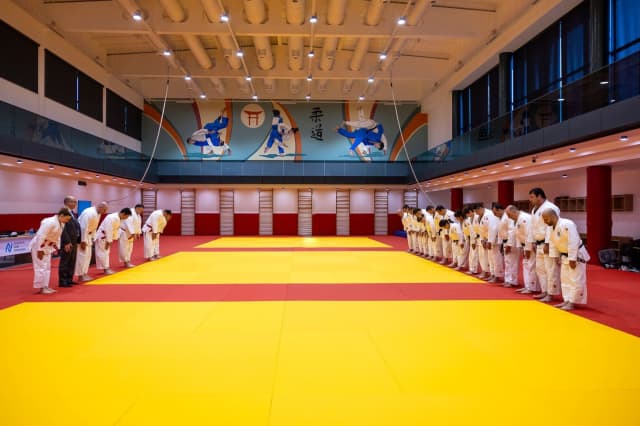IJF Head Referee Director Florin Daniel Lascau welcomed the referees and guests to the Baku meeting at the Azerbaijan National Training Centre, “We are fortunate to be in this amazing dojo thanks to the investment from the host federation. We are pleased to have held the IJF Academy course here just last week. Azerbaijan is taking amazing steps forward, keeping former athletes involved through coaching and officiating. They are pushing forward with performance, with education and also with refereeing.
We are now seeing some federations delivering their national refereeing seminars in the same format as our referee meetings and our annual IJF Refereeing Seminar.
Our supervisors and directors are here to maintain the quality of decision-making and the quality of our overall refereeing process. This referee meeting in Baku is an important part of that process and helps us all to stay on the same line.”
Secretary General of the Azerbaijan Judo Federation, Rashad Rasullu, said, “It is our great pleasure to welcome you to our national training centre. Great pleasure to hold the seminar here. As a federation we give a lot of attention to referee and with help from IJF ref comm. Good luck to all referees as they are also on their quest for Olympic selection while protecting our rules and fairplay.”
Mr Lascau then led the educational content of the afternoon. Many situations with numerous recorded examples of each were shown to illustrate the often thin line between a scoring or no-score situation. Bear hugs, shoulder placement at the point of impact, the landing on two knees to exclude the possibility of scoring were all discussed. There was also an interesting conversation about hiki-te and tsuri-te, reaffirming that the principles must be the centre of all understanding, in this respect, that the specific hand placement does not necessarily dictate which hand will be designated hiki-te and which tsuri-te.
Throughout the meeting, mat-based practice, video reviews and collaborative discussions were wove through the proceedings, reinforcing the philosophy that it is important to always make the right decision but also, in the closest situations, to have evidence for that decision.
The meeting closed after almost two hours of ensemble education, in plenty of time for all referees, supervisors and directors to get some rest ahead of 3 days of precision.




